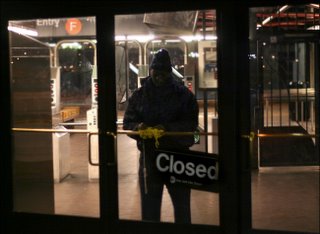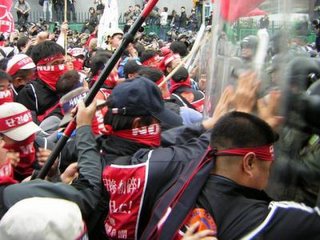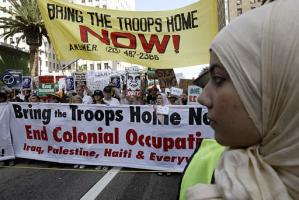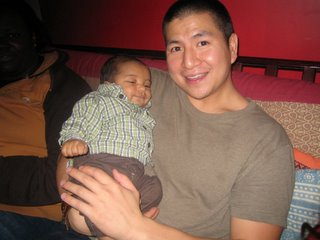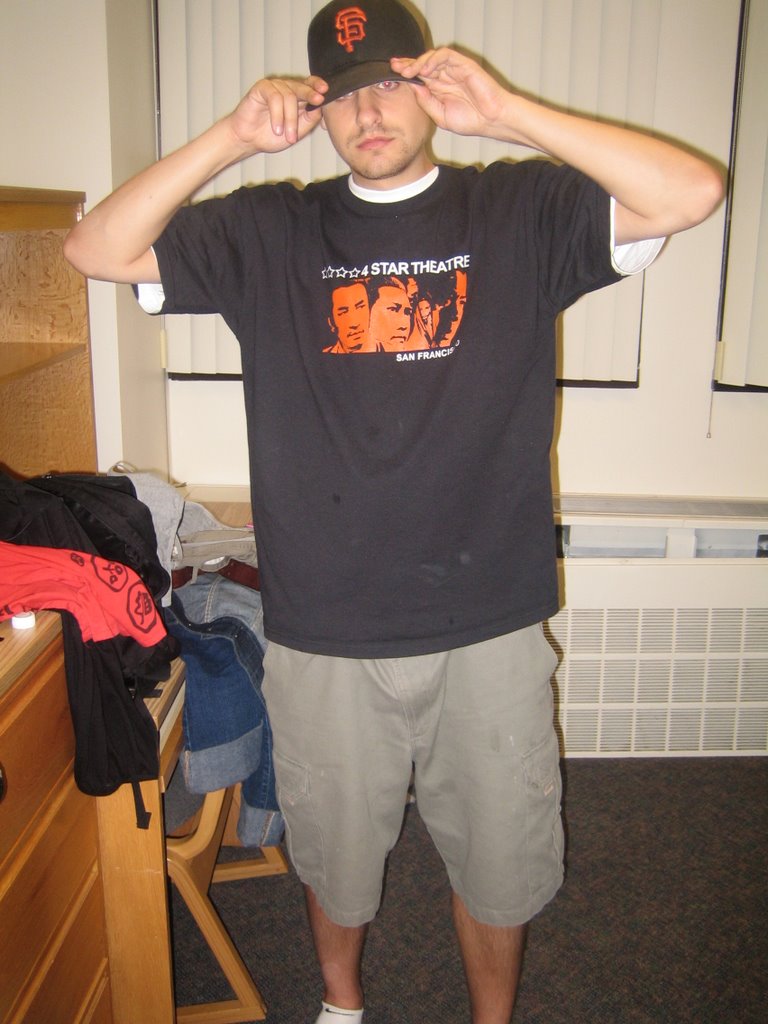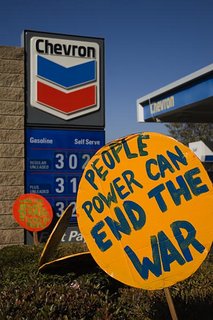 Anti-War Movement (Part I - personal experiences)
Anti-War Movement (Part I - personal experiences)I have been thinking a lot about the anti-war movement these past few weeks. I used to be very involved (pretty much full time) organizing in the lead up to the invasion of Iraq in March of 2003. Recent events have been pushing me to re-think my absence from some of this work. In the meantime, im going to write a few posts about the anti-war movement and my personal role within it and perhaps i can get some feedback from folks on what they are feeling like!
Local Campus OrganizingWhen I came out of college and moved back in with my parents in New York, i decided to join with the newly forming NYU Peace Coalition. The NYU campus was close to my parents house and in the aftermath of September 11th, 2001 it became a
hotspot for campus anti-war organizing. Our meetings balooned to (at times) over 100 people and eventually settled down around 30 student activists. The Peace Coalitions intitial grouping underwent a huge split towards the end of the fall 2001 semester, due mostly to the
ISO (International Socialist Organization) and their efforts at trying to bully the group into voting to join a new national student anti-war coalition (NCAN). The
background around NCAN is too long to go into here but people will be glad to know that the ISO has finally achieved its goal the second time around with
CAN (Campus Anti-War Network) of setting up a national front-group formation.
After the group had dwindled from 30 to about 6 (3 of which were ISO members), the three of us remaining built the group up again from scratch.
City Wide CoalitionIn the fall of 2002, when it became clear that the US was looking to (once again) invade Iraq, our group at NYU began to pick up some energy. Check out the cool '
History of the NYU Anti-War Movement' website (designed by another co-editor of Left Turn, Francesca Fiorentini) for a run down of some of our actions. As our group grew and we search for various ways to 'raise the stakes' locally on campus we did a series of militant direct actions that received a lot of news coverage. Over the course of planning out several of these actions some of us because aware of the formation of a new direct action oriented formation in the city called '
No Blood For Oil'. My experiences with NBFO were mixed. We organized some tight actions and had a good strategic frame-work which revolved around targeting the United Nations and registering us (as a part of the growing US anti-war movement) in the international media. We thought this was important, especially as a way to show the world that there was resistance within the US following September 11th, and because the United Nations was playing a central role in the unfolding of the eventual story-line.
National FormationNo Blood For Oil ran out of steam eventually for various reasons (too many of us were arrested multiple times, we were not bringing more people into the work, a few abrasive hyper-masculine personalities in the group, lack of flexibility after the UN focused strategy, lack of support from other direct action elements around the city etc). Still feeling energized from our work at NYU, including
several large student walk-outs that we organized, I was still looking to be involved in something larger then our local work at the University. I had heard about the formation of a national coalition called United For Peace (UPJ) which would later turn into
United for Peace & Justice (UFPJ). Several large players from past anti-war coalitions and progressive NGOs
came together to form UFPJ in October of 2002 and i ended up attending their first meeting in New York in late December. With NYU being on student break and the terrain shifting in terms of the rise of a new national anti-war movement I felt like this would be a good experience for me to get involved with. From January until April I worked as kind of the informal 'student/youth' liason for UFPJ, doing several media appearances for them (including an interesting live interview with Peter Jennings together with
Eli Pariser of moveon.org). Whatever conclusions I came up with reflecting on these organizations in the years following 2003, it was a very interesting and informative experience and has helped me understand many of the 'ups and downs' within the 'anti-war movement'. In a later post I will reflect on where i think UFPJ is at currently and some of their specific strengths and weaknesses.
